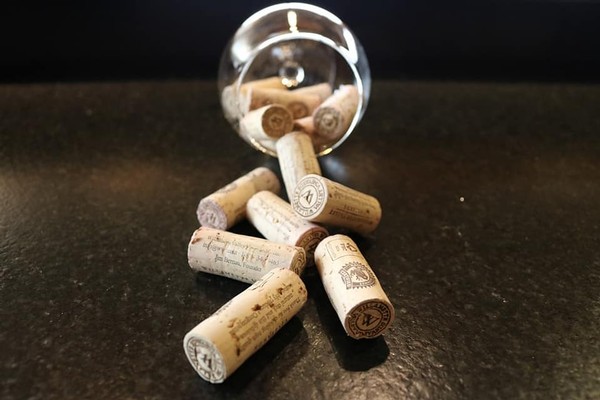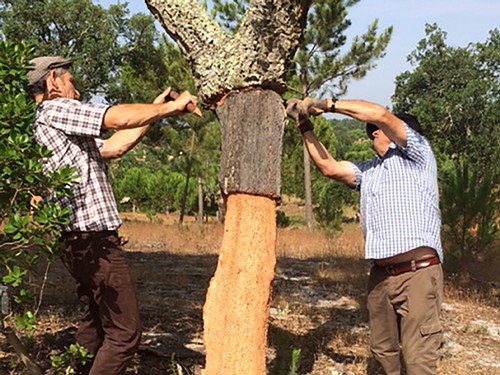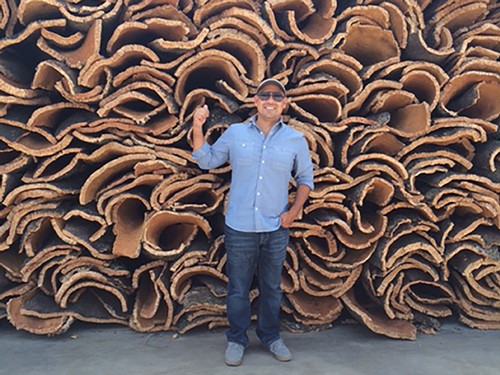Natural Cork, Plastic or Aluminum Screw Caps – Which is Best?
Since the winery's founding in 1983, Founder Jim Bernau has made stewardship of the land a key principle in our winemaking and farming practices. As a native Oregonian, the importance of sustainable farming practices is integrally woven into Willamette Valley Vineyard’s mission. That’s why we insist on using natural cork enclosers in all our wines and why our winery was the first in the world to use cork certified through the Rainforest Alliance to Forest Stewardship Council® standards.

What makes natural cork more sustainable than a plastic or aluminum screw cap? The millions of acres of cork tree forests pull carbon from the air and pump out oxygen, helping to offset our carbon footprint. The bark from just one tree can be harvested several times over the years, meaning the tree is never cut down but continues to sequester carbon throughout its long life.
What about the wine itself – does the enclosure really matter? Simply put, yes. While there are a multitude of factors, natural cork seals in the bottle quicker than plastic or aluminum screw caps. That means natural cork provides an aging advantage and significantly reduces the chance of anerobic, off-aromas developing in the wine.

{Winemaker Joe Ibrahim visits cork forests in Portugal and helps to gently peel the bark from the tree trunk.}
Are there negative impacts of alternate enclosures? With the entrance of alternate enclosures, the cork forests and the communities that farm them are under threat of wine producers and consumers who are turning to unsustainable enclosures like plastic.
Not only are these trees losing their financial caretakers, but many species, like the now endangered Iberian Lynx, are now losing their homes.
Why don’t all wine producers use natural cork? A big factor is price. High quality natural corks are double the price of plastic or aluminum alternatives. We have long put an emphasis on choosing what is right for the environment, as well as our consumer.
In 2010, we were honored with the Rainforest Alliance’s prestigious Sustainable Standard-Setter Award. Tensie Whelan, President of the Rainforest Alliance, commended us for our long-time leadership in agriculture and forestry: "Willamette Valley Vineyards’ efforts to provide sustainable livelihoods, conserve biodiversity and minimize environmental impacts have solidified Willamette Valley Vineyards as a leader of sustainable agriculture and forestry. Willamette Valley Vineyards has long been at the forefront of environmental conservation through the pursuit of FSC-certified cork, waste management near riparian zones, and investment in alternative fuels."

Winemaker Joe Ibrahim on a visit to a cork tree farm in Portugal.
Want to learn more about natural cork? Willamette Valley Vineyards created the Cork ReHarvest natural cork recycling program. This program was responsible for placing receptacles in all Whole Foods nationwide and other select retailers to collect cork and turn them into products like shoe footbeds, insulation and more!
Patrick Spencer, the past Sustainability Coordinator for Willamette Valley Vineyards, helped turned this program into the Cork Forest Conservation Alliance (CFCA) in 2008. You can watch his Ted Talk here.